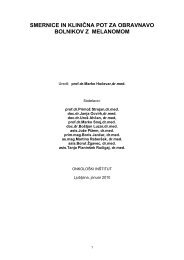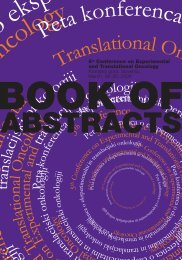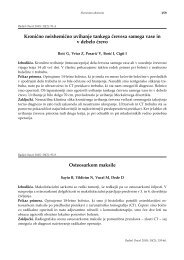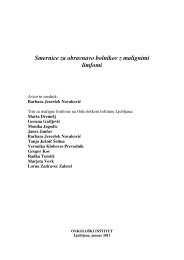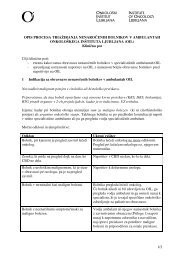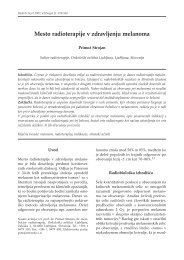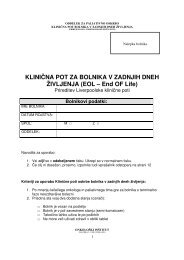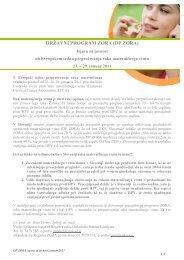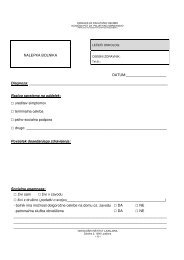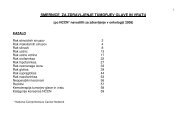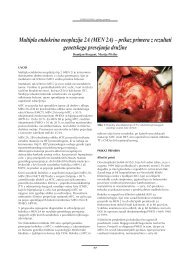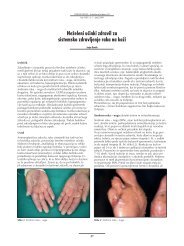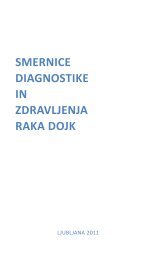Create successful ePaper yourself
Turn your PDF publications into a flip-book with our unique Google optimized e-Paper software.
Are AKR1C1 and AKR1C3 responsible for development<br />
and progression of endometrial cancer?<br />
Tina [muc 1 , Katja Kristan 1 , Gregor Bajc 1 , Ruth Rupreht 2 , Jasna [inkovec 3<br />
and Tea Lani{nik Ri`ner 1<br />
1<br />
Institute of Biochemistry, Medical Faculty, University of Ljubljana, Ljubljana, Slovenia;<br />
2<br />
Blood Transfusion Centre of Slovenia, Ljubljana, Slovenia; 3 Department of Obstetrics and<br />
Gynecology, University Medical Centre, Ljubljana, Slovenia<br />
Endometrial cancer is one of the most common malignancies in developed countries.<br />
In Slovenia, this type of cancer ranks fourth among all women malignancies and the<br />
incidence (29.1 cases per 100,000 predicted for 2005) is higher than that reported for the<br />
Western Europe and USA. It is well known that estrogens unopposed by progesterone<br />
present high risk for endometrial cancer. The hormone action can be regulated at<br />
the receptor level and at the prereceptor level by enzymatic interconversions of<br />
highly active hormones (estradiol, progesterone) with their inactive counterparts<br />
(estrone, 20α-hydroxyprogesterone). The hyxdroxysteroid-dehydrogenases (HSD)<br />
AKR1C1 and AKR1C3 are multifunctional enzymes which catalyze conversion at the<br />
3-, 17-, and 20-position of estrogens, androgens and progestins. Since AKR1C1<br />
is predominantly 20α−HSD and AKR1C3 possesses high 17β-HSD activity these<br />
enzymes could be responsible for modulating the levels of bioactive estradiol and<br />
progesterone in endometrium.<br />
In our study, we analyzed the mRNA levels of AKR1C1 and AKR1C3 and the presence<br />
of the AKR1C3 protein in endometrial cancer. We extracted RNA and protein fraction<br />
from 16 specimens of endometrial cancer and adjacent normal endometrium of the<br />
same patient. The same endometrial samples were formalin-fixed, paraffin embedded<br />
and sectioned for histopathological analysis and immunohistochemical staining with<br />
108p35<br />
AKR1C3 antibody. Quantification by real-time PCR revealed higher expression of<br />
AKR1C1 in 9 and AKR1C3 in 4 specimens of endometrial cancer. Western blot analysis<br />
confirmed the latter findings at the protein level and also immunohistochemistry<br />
demonstrated staining of AKR1C3 protein in cancerous endometrium but not in<br />
normal tissue. Our recent data thus indicate that changes in AKR1C1 and AKR1C3<br />
expression may be responsible for endometrial cancer development and progression<br />
due to increased estradiol and/or decreased progesterone levels.



